
The modern day hero wouldn’t be caught wearing a cape, or fighting crime in an iron suit, or seen contemplating life from the tops of skyscrapers.
The modern day heroes are the people who inspire us to strive when the future is grim, to take another step when it seems impossible, to dance like no one is watching (when really, there’s always someone watching). The modern day hero inspires us by being their genuine selves.
As a regular civilian, I search for these kinds of extraordinary people; those that are inspirational in every day life. I yearn for them, I hunger for them: the heroes that save the day, on the daily.
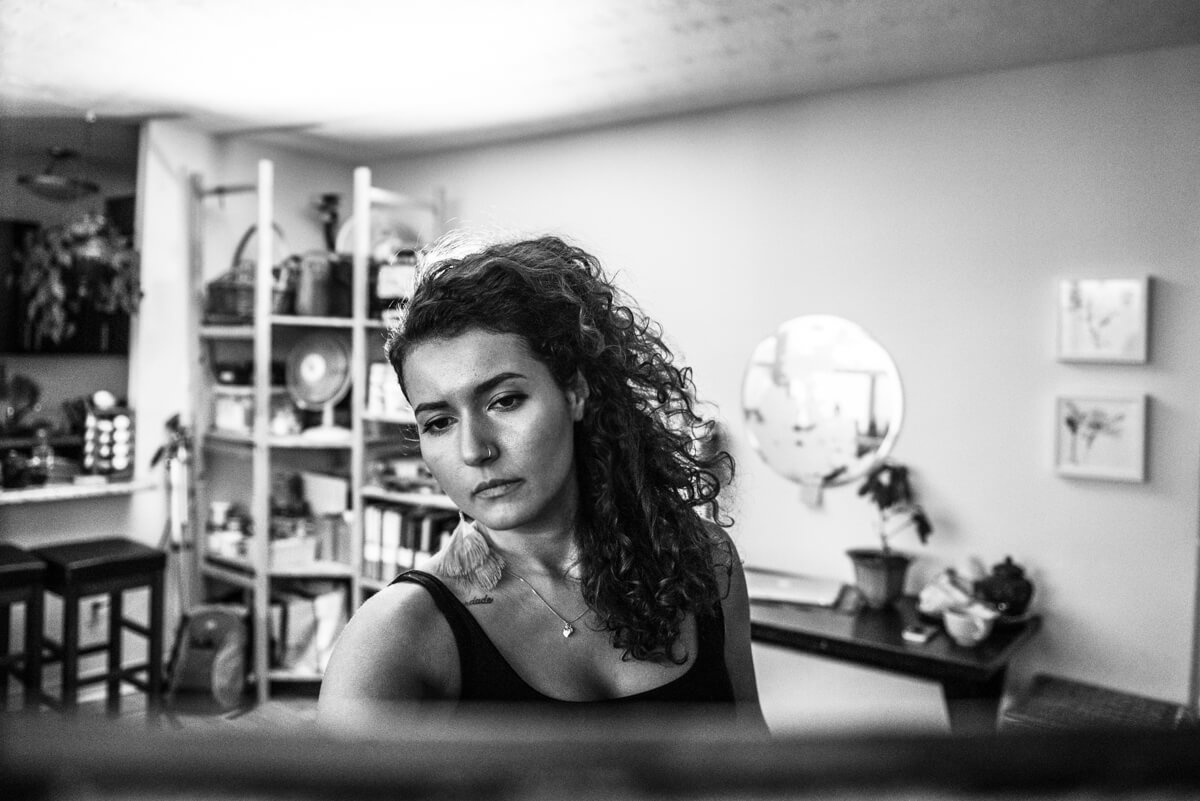
'When I look at your paintings, I hear twice the music.'
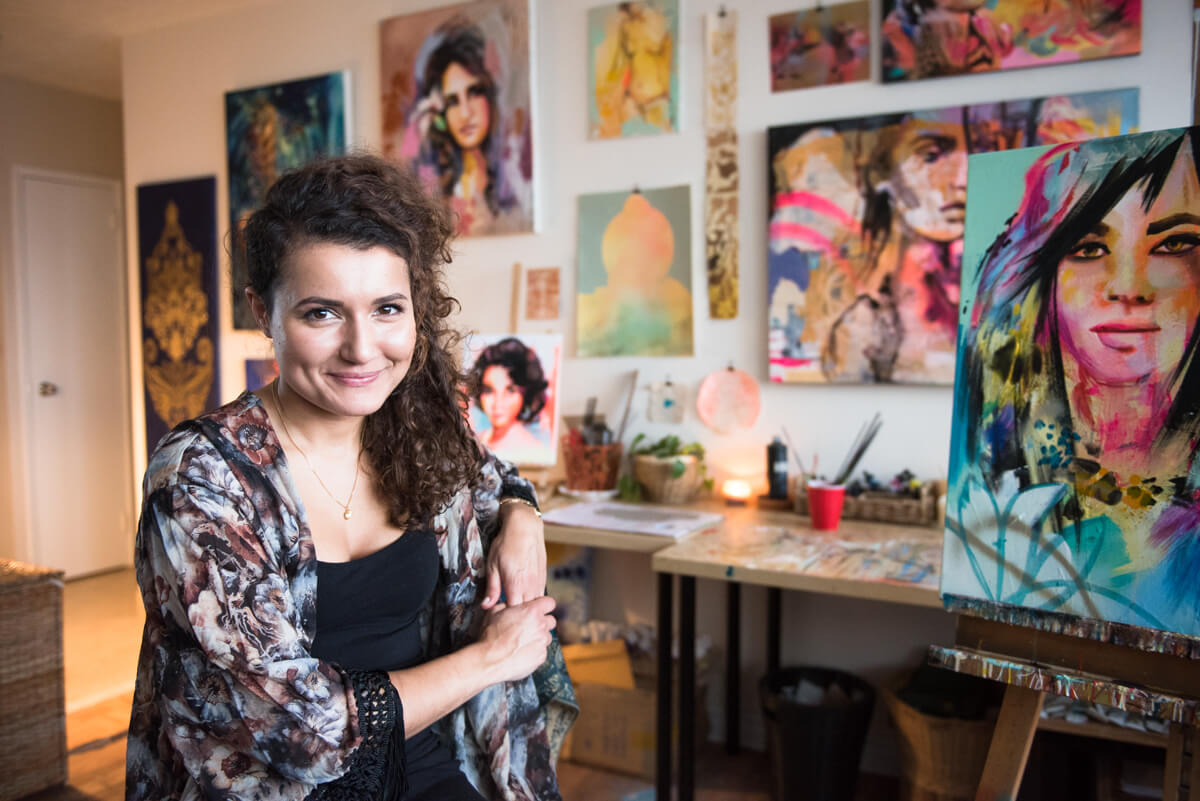
"You're intensely quotable," I tell Zara, as she relays her story to me over the trendy bar at Odd Seoul on Ossington. She has been honest, articulate, and calm throughout the interview, punctuating our conversation with her contagious laugh and her easy gaze. "What's the most beautiful thing someone has said to you?"
"One of my friends came to my solo show two years ago," she replies, "and she left a beautiful message in the guest book. It said, 'When I look at your paintings, I hear twice the music.' I thought that was the most beautiful thing."
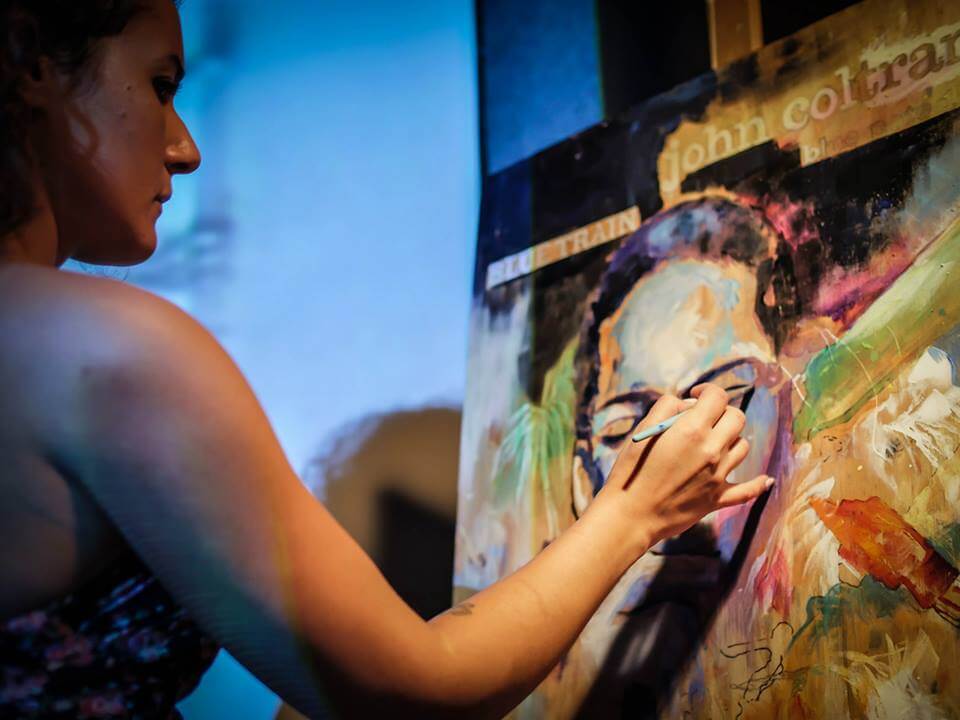
*Photo provided by Zara Diniz
I first met Zara when I had recently returned to Toronto after living in London, England. It was a hot summer day when I encountered her. I wanted to enjoy the sun and the city, which led me on a detour down Ossington St. I passed by a woman painting a mural, and was compelled to turn back and speak with her. I can't say why; I had never done anything like that before, nor have I ever done anything like it since. Zara and I spoke for over two hours that afternoon. We kept in touch for a year or so online, savouring one another's social media presence, until we finally met again in person for an evening of conversation and drinks. We've been friends ever since, the sort of friends whose warmth is always with each other even if we spend months apart.
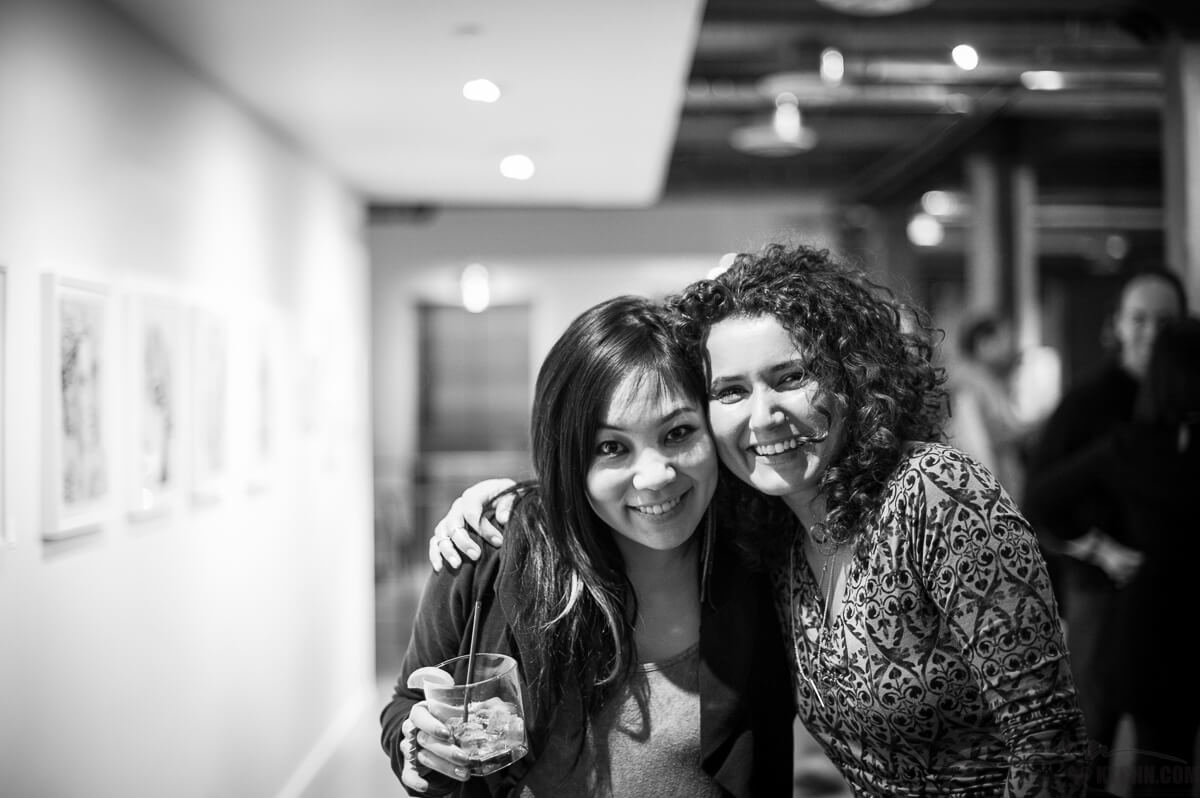
'From five years old to my mid-teens, I painted a lot of solar system paintings, because since I was little I was like, 'I'll become an artist, but if I don't become an artist I'll become an astronomer.'
Zara is a native Torontonian, but she possesses a soul cultivated by the tropics. Born in Toronto and raised in Mississauga, she attended OCAD University to pursue her artistic endeavours. She is perhaps best known as an international mural artist, but she has been painting since she was five years old. "From five years old to my mid-teens, I painted a lot of solar system paintings, because since I was little I was like, 'I'll become an artist, but if I don't become an artist I'll become an astronomer.' I believe in the stars, I believe there is planetary influence over our planet and vice versa. It's like relativity - there's some energy connection between all the bodies in our solar system." Zara's parents surrounded her with new opportunities to expand and to learn, but Zara's favourite memory of artistic experimentation during her early years takes place in her 4'x4' bathroom. "I painted in it until I was like fifteen - it was my place. I find that really pushes you, because if you put someone in a small space they're going to want a bigger space, and they're going to want to get better and better. In my mind I was like, 'If I get better, I'll get a bigger space.' It really pushed me to work with what I had."
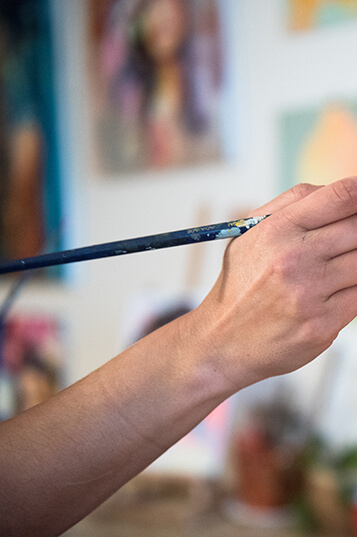
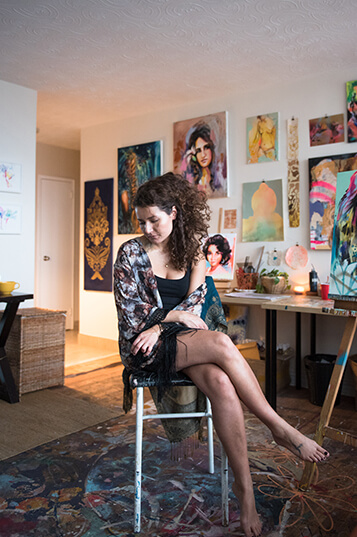
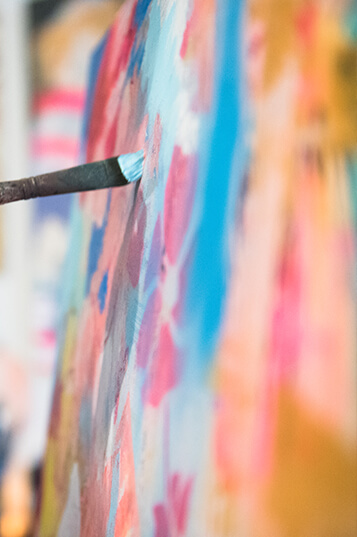
When she was sixteen, the nature of her work changed. Zara was sexually assaulted when she was fourteen years old, but it took her two years to process what had taken place. She went through a mild form of being comatose, losing her ability to structure senses and, consequentially, her confidence in speech. Art became therapeutic, an effective tool for processing emotions and for communication.
"Anytime we go through a traumatic experience we gain a lot of compassion because we have to have compassion for ourselves. It made me look at the vulnerability and innocence of young people, of cultures, and the environment."
The experience shaped her philosophy on art, on compassion, and on the things she values most: "Anytime we go through a traumatic experience we gain a lot of compassion because we have to have compassion for ourselves. It made me look at the vulnerability and innocence of young people, of cultures, and the environment." She focuses specifically on tropical climates, describing, "On one hand, it's beautiful, it's abundant, it's amazing, but on the other hand there's poverty, there's lack of education, and lack of health care." This fascination and empathy for tropical areas and their inhabitants is directly related to her ever-present theme of diversity within her body of work. "I see this crazy contrast and hidden agenda with these places," she explains, "because on the surface it's hot and sexy and shiny. It's glamorized - people go to these places for tourism. But on the outskirts, it's poverty. I'm not saying the people there aren't happy, it's just their government is corrupt. The West is enjoying all their resources, but at what expense? It's that duality that I'm attracted to."
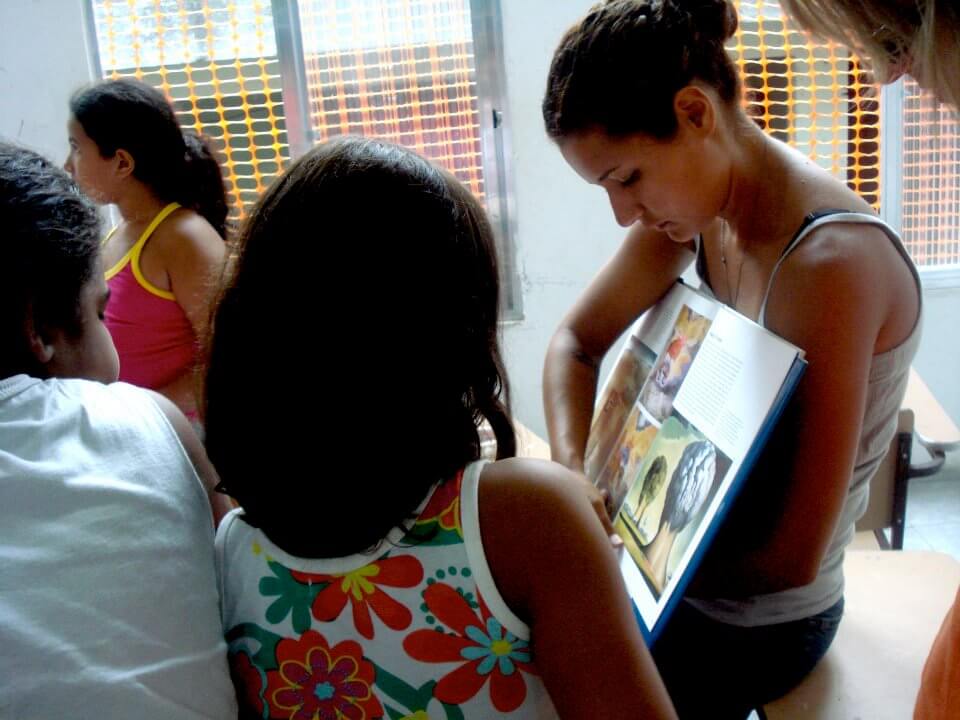
*Photo provided by Zara Diniz
Eighteen was a particularly eventful and influential year for Zara: during that time, she painted her first mural and she took her first teaching job. She dove into teaching with no prior experience, taking charge of a gymnasium brimming with over 100 children. "One of the people who asked me to teach said, 'I believe in you,' and it was one of the first times someone had told me that. I was in awe; I cried. It's an amazing power, saying that to someone. It can change everything." After her first lesson, she opted to continue with teaching, eventually taking on a wide spectrum of ages ranging from toddlers to university students. Her first mural was done at her school, fueled by exhaustion with the school system and with the aesthetic of the building itself. "I wanted to do a mural so the arts could be represented," she recalls.
"Seeing the looks on their faces - over there, they were overcome with excitement and appreciation for something we would take for granted."
Born of Portuguese descent, Zara is extremely well traveled. She has taught in Brazil, in China, and in Vancouver. She remembers China in particular as being a humbling experience, as her students there had not been exposed to North American methods of creating art. "Seeing the looks on their faces - over there, they were overcome with excitement and appreciation for something we would take for granted." She was touched by the effect she had on them, bringing them these techniques and learning through their eagerness precisely how valuable her talents could be. When I ask her where she'd like to travel next, she is excitedly prepared with a list: South Africa, where some of her family lives, Morocco, where so much space is adorned with design and with colour, and Cape Verde, where she has a particular love for the music. She also values places that have sacred grounds, places where she can feel the history and the energy that is present within the land. When I ask her for an example of such a location, she is immediately prepared with a story about the Ming tombs in China. "It's this long pathway in this park kind of thing, and along the pathway they have all the ancestors as these big stone sculptures. As you're walking you're passing the lions, then the elephants, and it was misty because of the climate that time of year - Octoberish. Our guide was telling us the history of what they would do. It was basically the funerals of all the royalty, they would travel down this path, and man, you could feel it. You could FEEL this - it was like they were there, these spirits were there and they were just resting and protecting it. It was really, really neat."
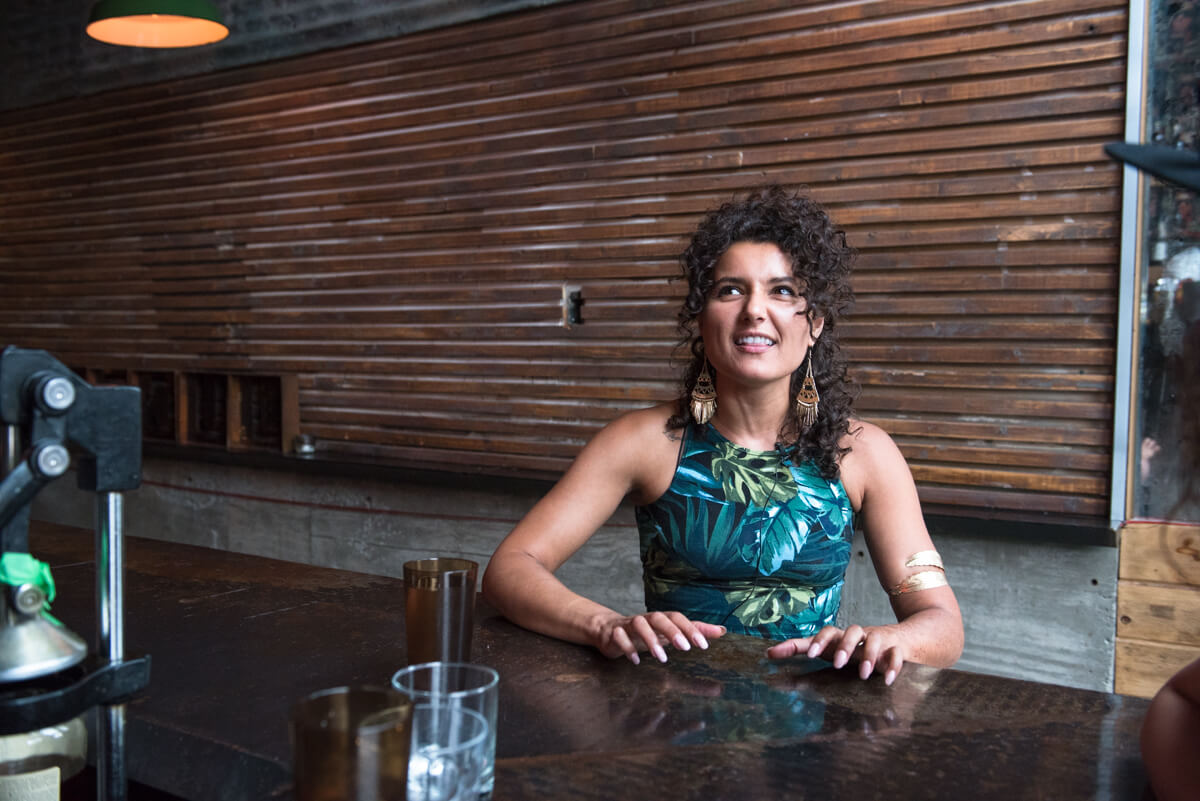
"It makes me feel like a kid. Because I teach young kids, I see myself in them a lot. I have that lust for wonder, my eyes are always hungry to see new things, and I'm very comfortable with creating a space that I can make mistakes in."
Although she does not have any murals featured in Toronto, Zara has been invited to paint around the world. In particular, she recalls painting a large mural in Brazil, on the fifth floor of an open concept building. "There was a little band playing," she describes, "I could see the ocean and the mountains and it was a very liberating experience, a sense of freedom, it was kind of dangerous and I was alone. In one way there's all this corruption around and all this rawness that's beautiful, and it's the contrast that makes it so memorable for me." Zara also enjoys the technical process of painting, grinning as she tells me, "It makes me feel like a kid. Because I teach young kids, I see myself in them a lot. I have that lust for wonder, my eyes are always hungry to see new things, and I'm very comfortable with creating a space that I can make mistakes in."
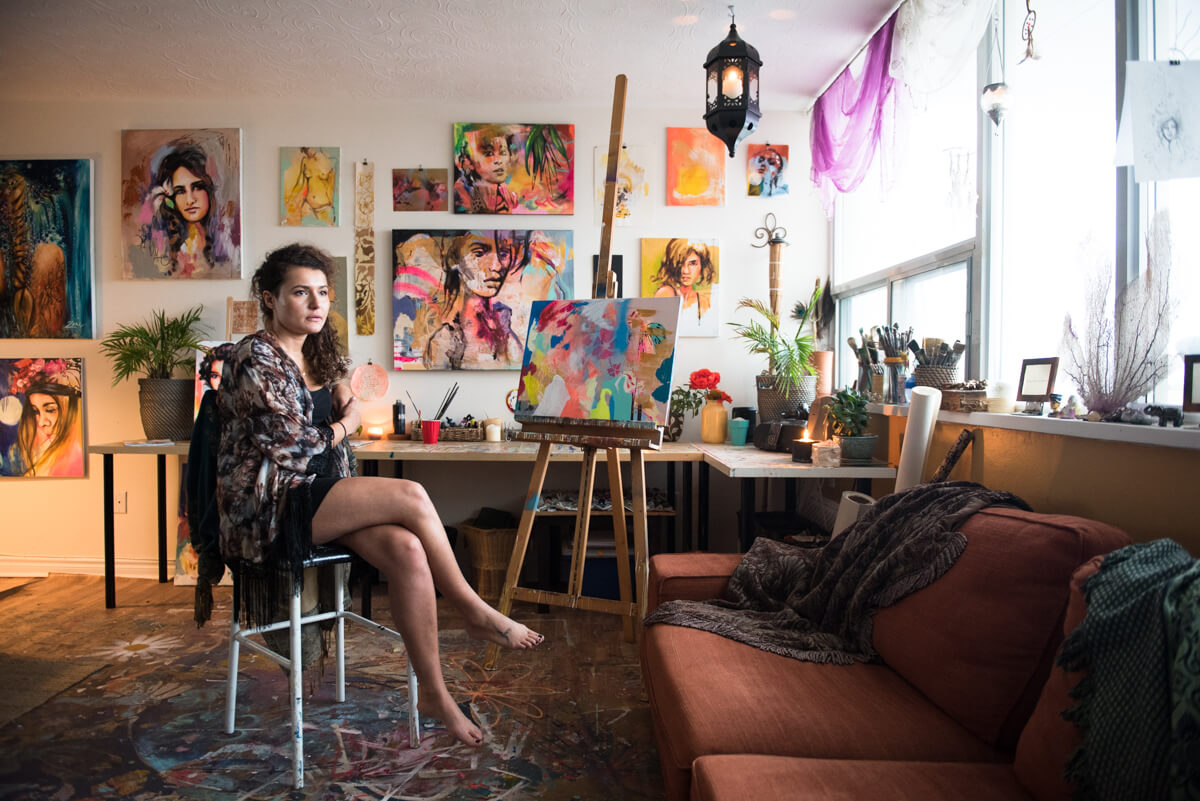
Along with the theme of diversity, Zara is enthralled with feminine mythology, and there is an extremely strong female presence in her work. "Women are very powerful creatures and they have a lot and they do a lot, so I find that's what draws me. Their beauty, yes, but it's behind the beauty. That's what I play around with too, the seductress, the temptress, all that stuff, but what's behind that? She's probably like everybody else." I find myself curious about how the assault during her teenage years affected her interest in women and in narratives featuring women. Zara pauses thoughtfully for a moment before declaring, "In creating and investigating that, I'm investigating myself, and that transformative quality in myself. I can be whatever I want to be, I can look like whatever I want. We all have that ability to dig deep and pull out the parts that we want and get rid of the ones we don't, and transform ourselves into a being that we're happy with. We ARE the painting, in a way."
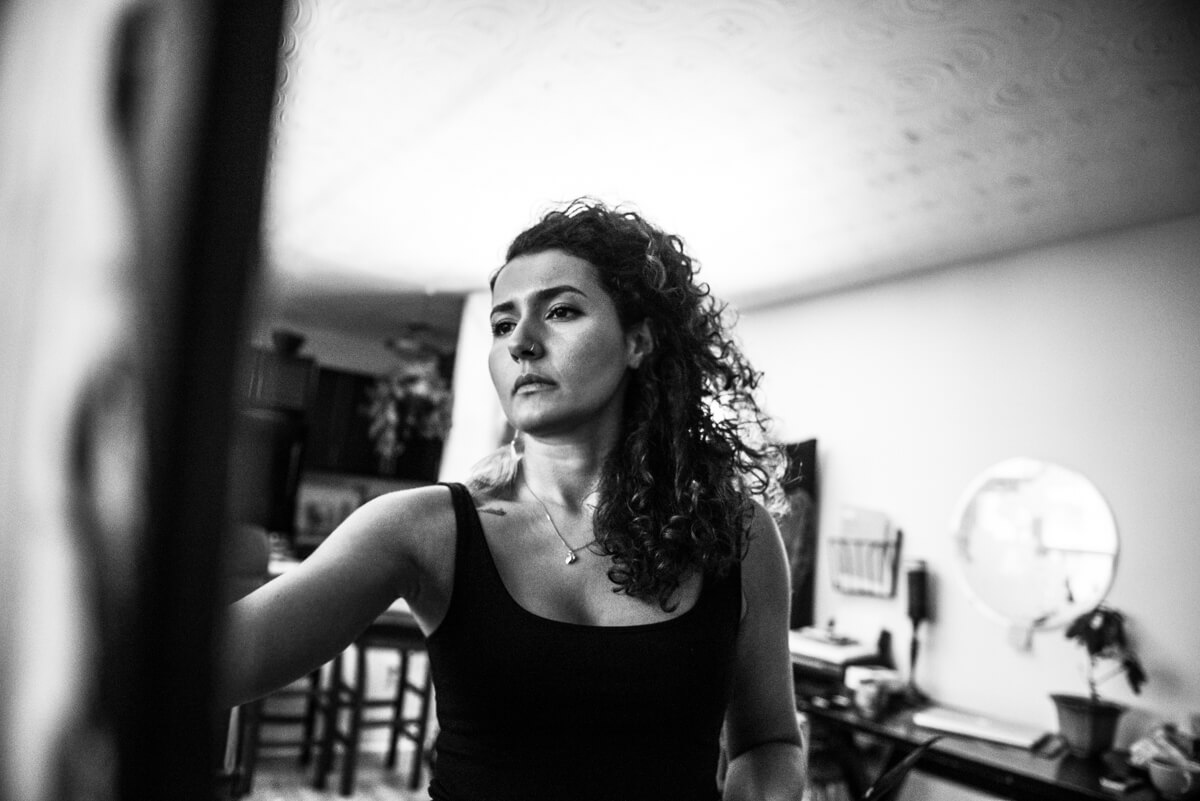
Has there ever been a time when your heart has led you astray?
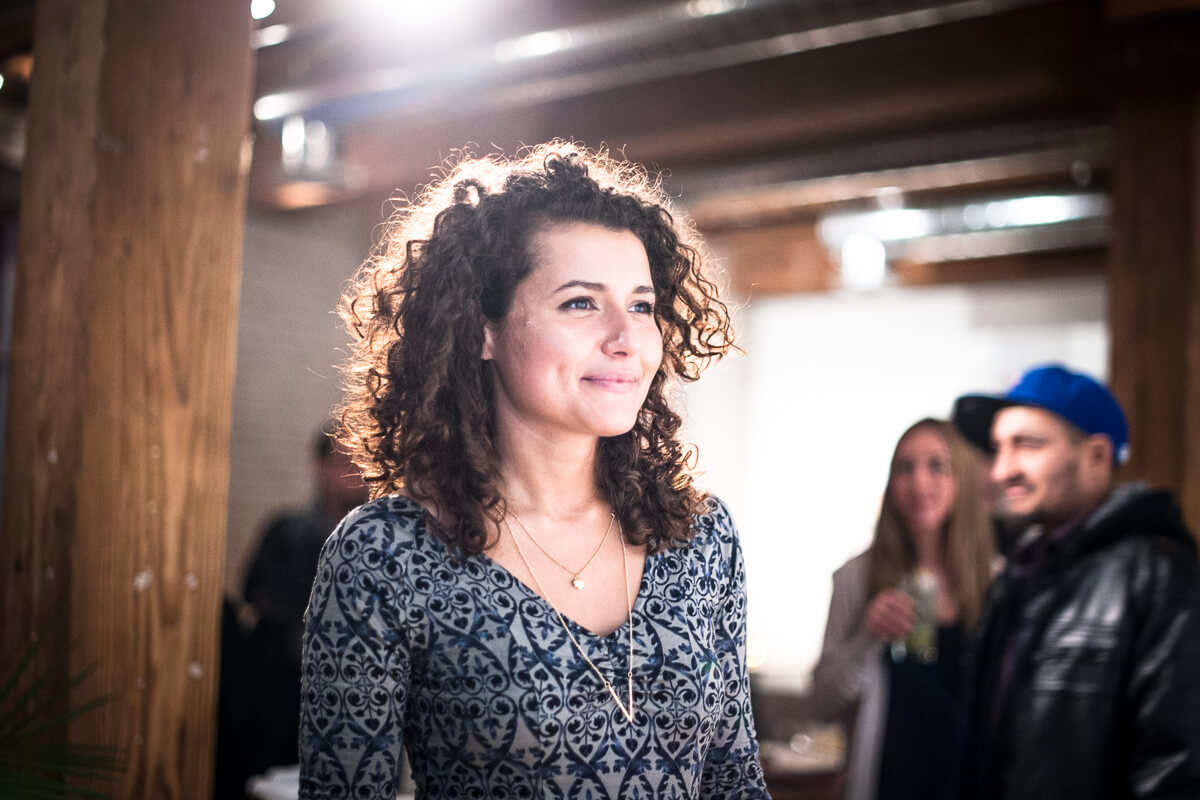
Finally, the bar starts to fill up and the chatter rises. Our conversation is drawing to a close. I ask her, "Has there ever been a time when your heart has led you astray?" Zara giggles nervously, and I half expect her to stammer through her answer, but she speaks boldly and simply as she replies, "I think when there's a death of any kind on the outside and you transform, sometimes you have the tendency to go into destructive areas and behave in ways that are not healthy, so that's always something that has led my heart astray. But then sometimes it leads you TO your heart, after you pass through it, because you realize, 'Shit, I shouldn't have done that, it hurts.' What we feel on the inside we always want to relate to the outside. We're always finding reflections. But when you follow your heart, things line up, and things always work. When they just work, when you land in the right space and time and people - I think eventually it's just human nature or condition: we get used to it, we take advantage of it, we're tired and we don't appreciate it, so we want to fuck it up again. You can't treat people in life like a painting. I can fuck up a painting, I can paint over it, but I can't do that with my life and not face the consequences. That's definitely a balance I want to figure out. Messy painting, not messy life."

"...when you're down it's like you're burning to the ground, you're burning into ashes, and then when you rise again you rise way higher."
Zara is a beautiful, strong, talented woman with a sincere lust for sharing her vision and her skill with as many creative spirits as she possibly can. I am struck with admiration for her, especially after she gently reminds me, "I've fallen down so many times and gotten right back up, and I find that when you're down it's like you're burning to the ground, you're burning into ashes, and then when you rise again you rise way higher." I look forward to watching as she learns how high she will rise.
CLICK HERE. Visit Zara's website to see her latest work!
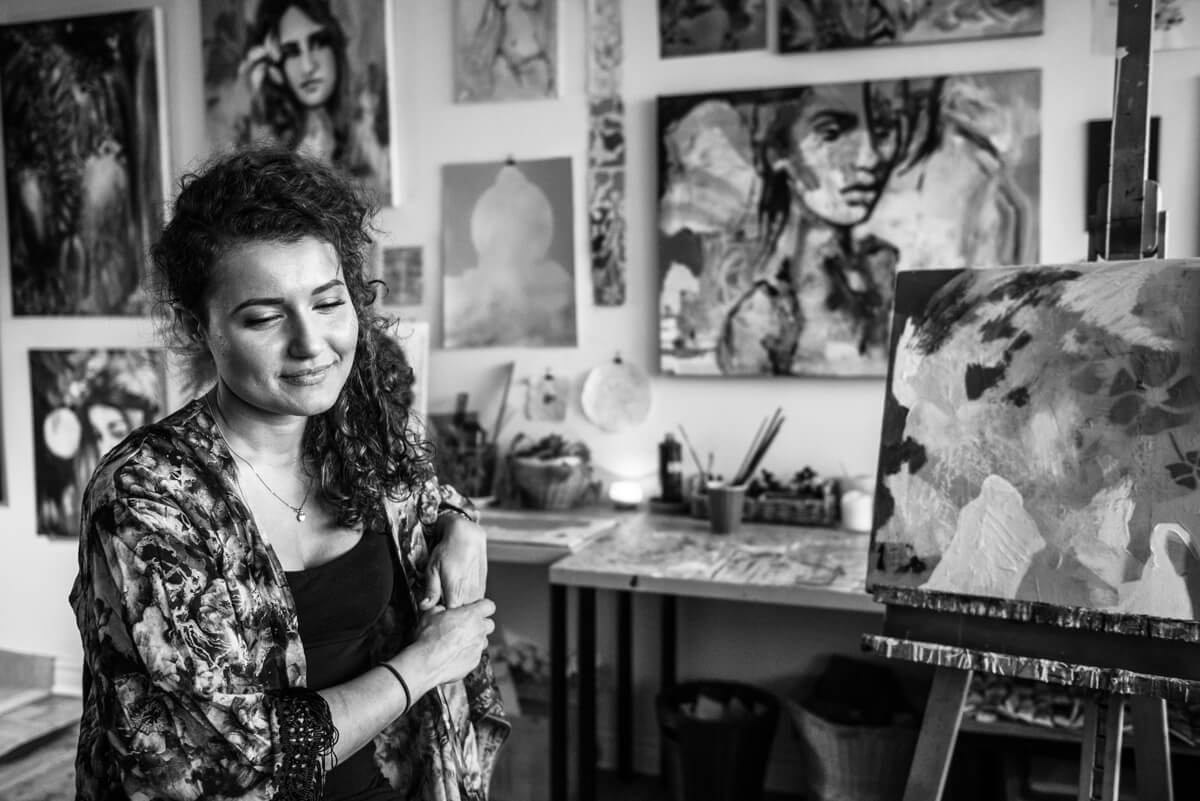
***Special thanks to ODD SEOULS, for allowing us to shoot at their restaurant and for those delicious cocktails! With HEART.




